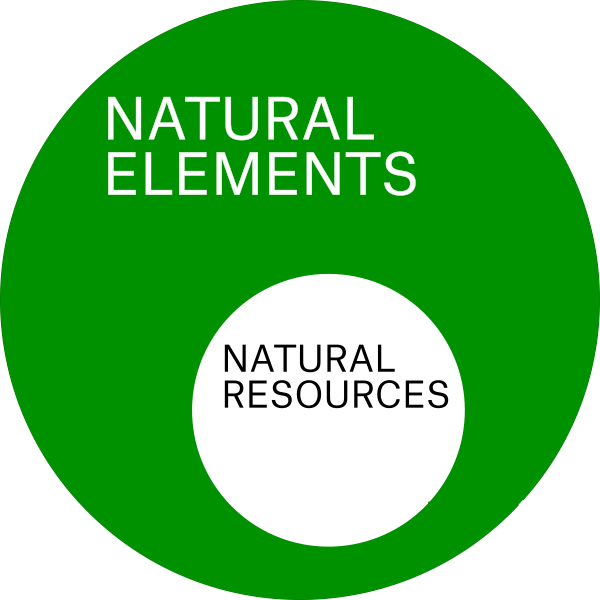Table of Contents
Natural Elements
Natural Elements are those elements that have been produced by nature, without the intervention of man.

Examples of natural elements are:
- Water
- Sun
- Wind
- Geothermal energy
- Animals
- Plants
- Fossil fuels
- Rain
Natural resources are natural elements that can be used to satisfy human needs. These elements can be used to produce electricity, heat and motion energy.
Electricity can be produced from Fossil Fuels, Water and gravitational force (Hidroelectricity), Wind, Sun (Solar), Geothermal energy, Biomass and waves, and tides.
Radiation from the sun is also an important source of heat that can be used to heat water for domestic or industrial uses. Geothermal energy is also a source of heat, but it is available only in some geographical spots. Biomass is also a source of heat.
Fossil fuels play an important role in the economy since they are extensively used to produce electricity, heat, and motion. Fossil fuels are non renewable resources, since they were produced naturally millions of years ago, and are not renewed after it's usage.
Difference Between Natural Elements and Natural Resources
Natural elements are elements that are provided by nature without human intervention, like the wind and the water.
Natural resources are those natural elements that can be used by us. For example, we can drink water and use the wind to produce energy.
There are natural elements that cannot be considered natural resources, like ore that is inaccessible to mankind.
We have created the following plot to show that natural resources are a subset of natural elements:

Discussion